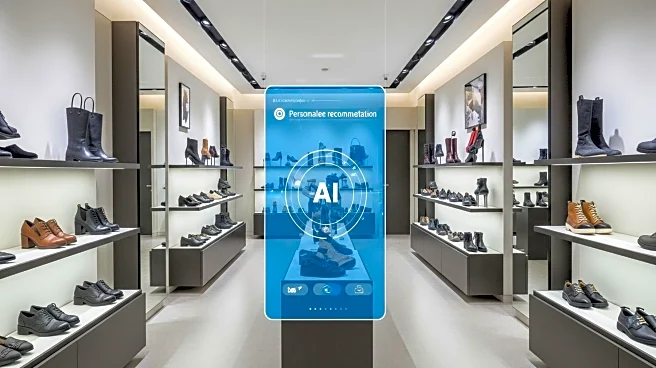What's Happening?
DSW (Designer Shoe Warehouse) is undergoing a strategic rebranding to enhance its market position amidst changing consumer preferences and economic challenges. The company is focusing on brand repositioning, in-store innovation, and AI-powered personalization to secure long-term relevance. DSW has modernized its product offerings, including expanding into athleisure, which has increased its market share. The retailer is also revitalizing private-label brands to reduce supplier dependency and capture higher margins. In-store innovations include integrating AR/QR code technology to create immersive shopping experiences, while AI-driven personalization optimizes customer engagement and loyalty programs.
Why It's Important?
DSW's strategic initiatives highlight the importance of adaptability in the retail sector, particularly in a fragmented market landscape. By leveraging AI and phygital experiences, DSW is positioning itself to compete with e-commerce giants while retaining the benefits of physical retail. The company's focus on personalization and demographic agility addresses key challenges such as consumer affordability and technological disruption. These efforts not only enhance customer retention but also reduce acquisition costs, providing a competitive edge in an era of rising marketing expenses.
What's Next?
DSW plans to open new stores and relaunch its VIP program, indicating a commitment to scaling its strategy. The success of these initiatives will depend on the company's ability to balance personalization with privacy and avoid over-reliance on technology. As DSW continues to innovate and expand, it will be crucial to monitor its execution and the impact on its market position. The company's approach could serve as a blueprint for other retailers seeking to navigate similar challenges.
Beyond the Headlines
DSW's transformation reflects broader trends in the retail industry, where companies are increasingly integrating technology to enhance customer experiences. The use of AI and phygital strategies not only improves operational efficiency but also aligns with consumer expectations for personalized and seamless shopping experiences. This shift could lead to long-term changes in how retailers engage with customers and manage their operations, potentially influencing industry standards and practices.








